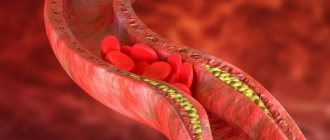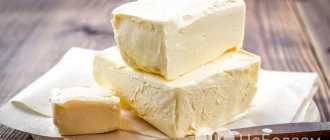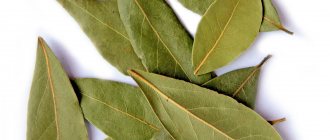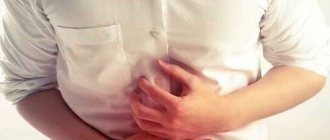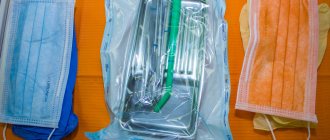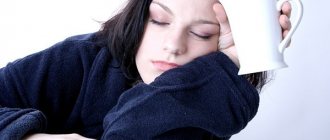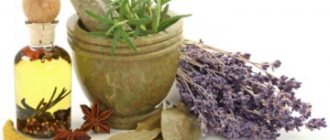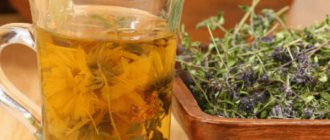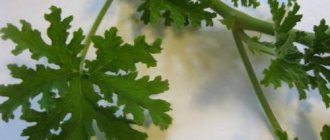Symptoms of elevated bilirubin
When the concentration of bilirubin increases, the color of the skin and sclera of the eyes first changes.
They acquire a characteristic yellow color. This is especially noticeable on the palms and lower surface of the tongue. This is where jaundice appears first. When the process of bile outflow from the gallbladder is disrupted, the amount of direct bilirubin increases sharply. In addition to jaundice, hepatic colic appears - attacks of acute pain under the right rib.
Increased bilirubin can irritate the nerve endings of the skin, causing quite severe itching.
Additional symptoms are:
- abnormal stool: feces are almost discolored, resemble white clay;
- bloated stomach, constipation gives way to diarrhea;
- nausea and “bitter” belching, bouts of vomiting;
- lack of appetite;
- urine darkens.
Often, the accumulation of excess bilirubin only causes severe discomfort in the liver area. It especially manifests itself after physical exertion, even minor ones.
If the cause of increased bilirubin is hemolytic anemia, then the symptoms are as follows:
- a feeling of discomfort under the left rib, caused by an enlarged spleen;
- temperature rises;
- urine becomes dark, possibly dark brown, and even black - this indicates that red blood cells are being destroyed inside the vessels;
- feeling very tired;
- frequent headaches;
- weakness throughout the body;
- painful sensations in the area of the heart.
If you have such symptoms, you cannot do without consulting a doctor and carrying out appropriate tests. And this needs to be done immediately.
How to increase blood bilirubin?
The level of bile pigment is significantly affected by medications, lifestyle and nutrition. To increase the concentration of bilirubin in the blood, you should pay attention to the following points:
- Eat a balanced diet and get enough calories. Diet and irrational fasting reduce the amount of bilirubin.
- Play sports. Exercising can significantly increase pigment levels.
- Forget caffeine—stay away from coffee, energy drinks, and cold powders.
- You should not take large amounts of anti-inflammatory drugs (NSAIDs). These include paracetamol, ibuprofen and aspirin.
- The use of choleretic drugs can also lead to a decrease in bilirubin.
- Do not overdo it with taking sedatives and sleeping pills. This primarily concerns barbiturates (phenobarbital and Corvalol).
How to find out the level of bilirubin in the blood
To find out the level of this bile pigment in the blood, you need to take a biochemical blood test. To obtain a reliable result, it is recommended not to eat the night before or the morning before the test. The normal level of bilirubin in the blood of an adult is up to 20.5 µmol/l. When the specified value is exceeded, first the mucous membranes (sclera, palate) turn yellow, and then the skin. In addition to changing the color of the skin, high bilirubin causes intense itching.
The normal pigment content in newborns in the first days can reach 100–150 µmol/l, gradually decreasing in the second or third week of life and reaching adult standards at 1 month.
Low bilirubin
Each laboratory has its own norm values, which may deviate slightly from generally accepted figures. Typically, reference (normal) blood test values indicate a range from 3.4 µmol/L to 17.1 µmol/L total bilirubin, of which direct bilirubin should not be more than 3.4 µmol/L, and indirect bilirubin - up to 13.7 µmol /l.
By itself, low levels of bile pigment usually do not cause significant symptoms - most people are not aware of changes in the body's condition until a biochemical blood test is performed.
In the absence of symptoms of health problems, low bilirubin levels in the vast majority of cases do not provide important diagnostic information. Only in some situations, a decrease in the concentration of bile pigment (in the presence of certain health complaints) may indicate the following pathologies:
- Anemia, or anemia. The disease occurs with weakness, dizziness and pale skin. In this case, there is an insufficient amount of hemoglobin in the blood, which means that there is not enough “material” for the normal formation of bilirubin.
- Kidney failure. Due to decreased kidney function, a person’s blood becomes “clogged,” as it were. The level of urea and creatinine increases sharply, the normal process of breakdown of red blood cells is hampered.
- Oncological diseases of the blood. Often lead to anemic syndrome with a significant decrease in hemoglobin concentration.
Diet
Treatment with folk remedies is only one of the components of a complex of actions necessary to reduce bilirubin.
It is difficult to reduce the level of bilirubin in the blood with medications alone. It is also necessary to eat according to a special diet, which is based on eating healthy foods that have a beneficial effect on the functioning of the liver and removing excess load from it.
Proper nutrition helps reduce bilirubin at home. To do this, it is necessary to include lean meat, dairy products, fruits, egg whites, milk and vegetable soups, and herbal tea in the diet. It is also recommended to adhere to the following recommendations:
- reducing the consumption of salty foods and coffee;
- exclusion from the diet of fried and fatty foods, alcoholic beverages;
- daily consumption of buckwheat, oatmeal or rice porridge;
- drink plenty of fluids, including herbal teas, fruit drinks, mineral water.
Preventive measures
Preventive measures to increase bilirubin in the blood are basic rules of a healthy lifestyle. It is necessary to spend time in the fresh air more often, engage in at least minimal physical activity and monitor any signals from the body that may indicate a deviation in the performance of internal organs.
Measures to prevent increased bilirubin are the following recommendations:
- giving up bad habits (drinking alcohol and smoking);
- preventing frequent stressful situations;
- timely treatment of liver and gallbladder diseases;
- compliance with the rules of balanced and fractional nutrition;
- exclusion of a sedentary lifestyle.
Norm of bilirubin
The process of bilirubin exchange in the blood is quite complex and consists of several stages. In the blood, due to the breakdown of red blood cells, indirect bilirubin is formed.
It is very toxic, is not excreted from the body, since it is insoluble, however, it goes through further stages:
- The protein albumin binds indirect bilirubin and transports it to the liver.
- The breakdown product enters the liver cell and stops on the membrane of the endoplasmic reticulum.
- Next, bilirubin binds with glucuronic acid, resulting in the formation of a soluble form of bilirubin diglucuronide.
- Then most of the converted breakdown product of red blood cells is excreted from the body with feces, the remainder enters the bloodstream, is filtered through the kidneys and is removed through the urinary tract.
An increase or decrease in the concentration of this substance in the blood always indicates the occurrence of some pathological process in the body.
The levels of the substance in the blood of adults and children are different:
| Type of bilirubin | Patient age | |||
| newborns (1-3 days) | infants (3-6 days) | children older than a month | adults | |
| Indirect (μmol/liter) | 23,5-179,8 | 27-197,6 | up to 16 | up to 16.5 |
| Direct (μmol/liter) | 0,5-10,2 | 1-12,4 | 0-5,1 | 0-5,1 |
| Total (μmol/liter) | 24-190 | 28-210 | 3,5-20,4 | 8-20,5 |
Indirect bilirubin is the toxic substance that is formed as a result of the breakdown of red blood cells. Direct - processed by the liver and ready to be excreted; total bilirubin - the sum of direct and indirect.
The reasons for increased bilirubin can be very different. Minor deviations can be easily corrected and do not pose a threat to the patient’s life. But there are cases when the concentration of this substance in the blood is tens of times higher than the normal limit. The patient needs emergency medical care, because this condition can lead to severe intoxication of the body and, as a result, death.
Treatment of elevated bilirubin at home with folk remedies
This is one of the breakdown products of hemoglobin, the increase of which in human blood can be life-threatening.
As the indicators increase, everything possible should be done to reduce its concentration, that is, remove this substance from the body at home, since it is toxic.
Elevated bilirubin is treated with folk remedies, which, when taken, level it out in the blood; they are often used by many opponents of drug therapy.
This bile pigment, which is needed by our body, but in moderate doses, is a breakdown product of hemoglobin and is found in the blood and bile.
If the amount of bilirubin is exceeded, this leads to intoxication, here treatment can quickly help. It is a breakdown product of hemoglobin and is found in blood and bile.
In this case, you need to know a lot about home procedures on how to eliminate excessive concentrations of bilirubin. Your doctor will tell you about this, so ask him questions at your appointment.
Simple remedies to reduce
You can ease the load on the liver using proven methods of alternative medicine:
Recipes using traditional methods
- A tincture for normalizing bilirubin from motherwort, chamomile and St. John's wort will have a diuretic effect and help cleanse the internal organs. Brew these herbs into a 200 gram glass. Drink half of the tincture in the morning 20 minutes before meals. In the evening before going to bed you need to drink the rest.
- Fresh beet juice for bilirubin, if it has jumped, is drunk every time before meals.
- Sometimes, to remove excess, calendula is brewed at home and the decoction is drunk throughout the day. This helps quite quickly.
How to remove bilirubin from the body?
1.
Try to create a daily routine that is convenient for you and strictly adhere to it.
If bilirubin is low, try to spend as much time as possible in the fresh air, take medications from the pharmacy, maintain a proper sleep schedule, do not go to bed late and get up early.
Your daily sleep requirement should be at least eight hours. After all, bilirubin is best removed when a person is in a horizontal position.
2.
Liver cells contain enzymes that help remove increased bilirubin.
If you experience constant stress, the production of these enzymes is disrupted, so try to protect yourself from stress and empty worries, do not burden it and learn to relate more simply to what is happening in your life and not enter into conflicts. To choose traditional medicine, consult a doctor and select sedatives that suit you.
3.
Diet should become the main companion on the path to recovery. To know how to remove bilirubin from the body, try to eat food without salt, containing a minimum of seasonings and spices. Eat more fruits, berries and vegetables to prevent an increase.
4.
For complete treatment, if increased bilirubin levels are observed, resort to prescription therapy using: immortelle, milk thistle, calendula, red rowan, elecampane, rose hips. All these herbs are choleretic, alternate them and prepare tinctures.
It is very easy to prepare a tincture to reduce increased bilirubin and remove it. To do this, you need to take a tablespoon of one of your favorite herbs and brew it with a glass of boiling water. Let it brew for half an hour, then strain.
Drink 50 ml of tincture 15 minutes before meals.
5.
Impaired liver function can also cause an increase in a substance such as bilirubin, so it is better to consult a doctor before treatment, who will monitor the amount of the substance and prescribe the necessary medications.
Blood analysis
You can do an analysis. Here are some recommendations on how to prepare for the test if bilirubin is elevated:
- do not eat or drink 4 hours before the test;
- If you are taking any medications, be sure to notify your doctor. If you are allergic to any drugs, you must also report this;
- Women who want to reduce elevated bilirubin from the body should be sure to report pregnancy, if any.
Features of treatment at home
Catering - tips
It is important for a patient with surges in bilirubin to eat properly. Chemical medications for removing substances, unlike natural products, can cause allergies or other inappropriate reactions of the body.
If a person decides to use similar methods for treating bilirubin, then he must remember that the excess that is toxic to humans should not only be removed by activating the work of the liver and biliary tract, but also the cause of the increase in the blood should be cured.
The first thing to do is to choose simple means:
- Eliminate fried and fatty foods from your diet, thereby relieving the liver. This will help the body at home to gain more resources to process increased concentrations of bilirubin.
- Also avoid spicy and peppery foods.
- It is advisable to exclude the use of alcohol from the diet when a person’s bilirubin is elevated.
- You can eat boiled food as well as steamed food. The simplest methods must be inextricably linked with proper nutrition.
- It is better to eat small portions of food during the day when elevated or very high bilirubin is recorded than to eat a lot, but rarely. This will help relieve the stomach and intestines and activate the functioning of the organs.
Natural remedies are most often safe, but not always effective for everyone. If increased bilirubin occurs due to dangerous diseases such as hepatitis, you should consult a doctor.
If you have tried folk remedies and special nutrition, but due to the characteristics of your body they were not effective enough, it is better to consult a doctor and undergo medication treatment, which will guarantee your recovery.
At home, you can bring down elevated bilirubin levels without any complex medications.
Monitor the condition of the liver; if it is sick due to a large amount of alcohol or medications, bilirubin may increase sharply. Often there is a bitter taste in the mouth, abdominal pain, nausea, and fever.
- During treatment, try to check the condition of the internal organs when bilirubin levels are elevated, at least once every six months, this will help to avoid unexpected results.
- Remember, the sooner you begin to fight the disease with the best methods - simple and inexpensive means, the easier it is to overcome it later. Increased and too high bilirubin will no longer cause trouble.
- Take care of your diet, do not eat too fatty and fried foods, because this impairs the functioning of the liver and all internal organs, eat healthy foods, take vitamins, and take walks in the fresh air. Otherwise, both budgetary funds and complex non-traditional methods will be powerless.
- If you often feel nausea, when bilirubin levels in the blood are elevated, a bitter taste in the mouth, abdominal pain, or the skin has acquired a yellow tint, consult a doctor immediately.
Do not delay the selection of folk remedies until later when you have increased bilirubin, because this can lead to Gilbert's syndrome, the treatment of which is quite long. At home, you can implement the most effective methods of combating the disease.
Elevated bilirubin is not a death sentence; it is highly treatable. Folk remedies will definitely help you with this! Remember, poor liver function negatively affects the entire body, worsening overall health and well-being.
All this can lead to the development of hepatitis, so you need to respond immediately! Don't forget to take care of your health and you will see the results.
Source: https://www.medmoon.ru/bolezni/povishenii_bilirybin_lechenie_narodnymi_sredstvami.html
Bilirubin increased reasons
The reasons that cause bilirubin to exceed the norm are grouped into the following groups:
- acceleration of the process of destruction of red blood cells;
- failures in the processing of pigment directly in the liver;
- problems in the outflow of bile.
When red blood cells begin to be rapidly destroyed, both hemoglobin and indirect bilirubin increase sharply.
A shortened life cycle of red cells is characteristic of a group of blood diseases collectively called hemolytic anemia. It is divided into two subgroups:
- hereditary;
- acquired.
I. Hereditary disease is caused by genetic pathologies:
- membranopathy – damage to the structure of red blood cell membranes;
- fermentopathy - a decrease in the intensity of those enzymes that are important for the life of red blood cells;
- hemoglobinopathy - the structure of hemoglobin is disrupted.
The most commonly observed hereditary hemolytic anemias are:
- Sickle cell – associated with the production of “incorrect” hemoglobin. The structure of its protein is disrupted, and it acquires a crystalline non-standard structure. The shape of the red blood cells becomes sickle-shaped.
- Cooley's anemia, or thalassemia. The disease is characterized by a decrease in hemoglobin production.
II. Acquired hemolytic anemia is characterized by the fact that the body begins to produce antibodies hostile to its own red blood cells. The disease also appears as a result of exposure to toxic substances.
Materials harmful to red blood cells include:
- arsenous hydrogen, or arsine, is formed in some industrial processes and enters the body by air;
- phenylhydrazine is the basis for the production of medicines and azo dyes;
- Hyperiz (benzoyl peroxide) is a component in the production of rubbers, acetone, and fiberglass.
An increase in indirect bilirubin can also be caused by:
- Lack of vitamins, especially B12 (cyanocobalamin). This is the only water-soluble vitamin that can accumulate in the body - it accumulates in the liver, spleen, lungs and kidneys.
- Infectious diseases, namely sepsis, malaria, typhoid fever.
- Syphilis in the second and third stages.
- Lucy-Driscoll, Gilbert or Crigler-Nayjar syndromes.
Medicines such as aspirin, chloramphenicol, insulin, among their arsenal of side effects have an increase in bilirubin
Therefore, they should be taken with caution
The liver plays an important role in the metabolic processes of bilirubin. If pathological processes occur in it, then it is not able to completely neutralize the toxic yellow pigment
The result may be ailments that are accompanied by an increase in the concentration of direct bilirubin:
- Viral hepatitis of all types, including drug-induced and alcohol-related.
- Cirrhosis of the liver.
- Hereditary jaundice: Rotor and Dabin-Johnson syndromes.
Gallstone disease associated with problems with the outflow of bile can increase the level of direct bilirubin.
Another factor in the increase in direct bilirubin concentration is helminthic infestation. The penetration of worms into the body is a common phenomenon and should not be underestimated.
Reducing bilirubin levels with medications
Preparations based on herbal ingredients
Medicines based on milk thistle extracts are prescribed. It can improve protein production in damaged cells and prevent further destruction due to its antioxidant properties. Milk thistle also protects liver cells from the negative effects of alcohol and promotes the excretion of breakdown products along with bile. Due to this, the level of bilirubin decreases.
The most popular and effective medicines:
- Silibinin . Prescribed for alcohol poisoning, heavy metals or hepatitis and cirrhosis of the liver. Side effects such as intestinal dysfunction or an allergic reaction are possible.
- Silibor . The duration of the course is from one to two months. In rare cases, after administration, an allergy appears in the form of a skin rash.
- Silymarin-Hexal . Particularly effective for chronic liver diseases or damage caused by toxins. The duration of the course is three months. Therapy with this drug is not recommended for children under 12 years of age.
Norm of bilirubin in women
How to reduce bilirubin
How to reduce bilirubin in the blood?
Doctors know how to reduce bilirubin in the blood and cure jaundice. To do this, you need to ease the load on the liver and adhere to a special diet. It involves excluding fried, spicy, peppery, alcoholic and carbonated drinks from the diet. During illness, you should eat only boiled and baked food, and do not overeat. By reducing the load on the liver, you give it the opportunity to recover so that it can independently remove excess bilirubin.
Herbal decoctions can improve liver function.
Medications can also help the liver fight jaundice. Before using them, you should consult your doctor. Patients are usually prescribed Carsil and Phenobarbital, but in some cases these drugs are contraindicated.
First of all, you need to identify and eliminate the root cause of the increase in bilirubin. Be sure to go to the doctor and get a biochemical blood test. If a drip is prescribed, undergo infusion therapy. This therapy will quickly reduce and return the level of bilirubin to normal.
To reduce bilirubin, you will also need anti-inflammatory, restorative herbs, such as:
- St. John's wort,
- common chamomile,
- mint,
- motherwort,
- birch leaves.
They effectively reduce bilirubin in the mixture:
- daisies,
- mint,
- St. John's wort,
- motherwort.
Pour boiling water over everything, leave for 30 - 40 minutes.
This decoction should be strained and drunk in the morning and evening, half an hour before meals.
You can simply brew a decoction of birch leaves, which will help improve the functioning of the entire gastrointestinal tract and reduce the level of bilirubin, bringing it back to normal. Improve bowel function, eliminate constipation and disorders, increased gas formation in the intestines.
Dill decoction or activated charcoal will help cope with gas formation in the stomach.
If you have been prescribed honey. medications, be sure to consult your doctor.
Do not overuse, but rather give up fatty and heavy foods for a while, eat more vegetables and fruits.
You cannot drink alcoholic beverages. Food should be healthy and easy on the digestion and liver.
Smoked, spicy and salty foods are not allowed.
If possible, steam your food, this will help preserve vitamins. Be examined by a doctor for the presence of various parasites in the body, for example, giardiasis. Nervousness and stress lead to a weakening of the body, try to be less nervous and take everything to heart.
Folk remedies for reducing bilirubin
Before starting therapy with folk remedies, be sure to consult your doctor.
Beet juice
Beetroot juice has a choleretic effect. You only need to squeeze the juice for the daily portion – one glass. Drink 1/3 cup three times a day before meals. You can take this remedy for 20 days. If bilirubin does not return to normal, you need to take a week break and repeat the course. As a preventive measure, take juice according to the same scheme.
Birch bud tincture
You need to collect buds at the earliest stages of their appearance - at this moment the concentration of useful substances is highest. After collection, the buds are dried well. For one serving, a tablespoon of preparations is enough. They are poured with a glass of boiling water and left for 30 minutes. Take every day before bed. Duration of therapy is 15-20 days.
Corn silk
Due to the high content of beneficial elements, corn silk helps remove bilirubin and other toxins from the body. Their use cleanses the blood and improves its clotting.
To prepare the product, pour 100 g of dried raw materials into 200 ml of boiling water. Leave for at least an hour. After this, the tincture is cooled and filtered. The filtered drink is drunk 5 times in small portions. It is necessary to maintain a break between doses of at least 60 minutes. The course of treatment is from 2 weeks.
Milk thistle
To prepare the product you will need a teaspoon of milk thistle seeds. They are poured with a glass of boiling water and left for a third of an hour. The prepared solution is drunk throughout the day. The duration of the course should not exceed 3 weeks. If necessary, therapy can be resumed after a week's break.
Soda
Mix a teaspoon of soda in a glass of warm water and drink in small sips within an hour after the first meal. The course of treatment is 10 days.
Types of bilirubin
When studying the composition of the blood, the content of bilirubin is determined:
- general;
- direct (related, conjugated);
- indirect (unbound, free).
Initially, the spleen produces indirect bilirubin, which is very toxic. It does not dissolve in water and cannot be excreted from the body. Indirect bilirubin can easily penetrate the membrane of any cell and disrupt its normal functioning. Its initial target is the brain, then the entire nervous system comes under attack
That is why it is important that the concentration of this type of bilirubin does not leave the established limits
If the level of free bile pigment is normal, then it enters the liver along with the blood, where it is converted into the direct form of bilirubin.
In this state, the substance is low-toxic, easily dissolves in water, and therefore quickly leaves the body along with feces and urine.
Based on medical research, a hypothesis has been developed that bilirubin is the main cellular antioxidant
And if this is true, then monitoring the level of the substance and not allowing it to go beyond the norm is an important task
Absolute lymphocytosis:
In this condition, the increase in lymphocytes does not occur against the background of a change in the number of other cells, but in the absolute: their number increases. Normally, they contain from 1 to 3 thousand cells per 1 microliter of blood, and in some conditions their production by the body increases, which leads to the appearance of corresponding changes in tests.
Lymphocytes are elevated in a child and in an adult if he is sick:
• ARVI. An aggressor penetrates the body, and when the immune system “understands” this, it immediately reacts with increased formation and release of protective cells into the blood.
• Lymphocytic leukemia. This type of leukemia is manifested by the fact that a person experiences a disturbance in the formation of lymphocytes, and not ordinary ones, but altered ones: in fact, these are cancer cells. There can be a lot of them, the number increases several times compared to the norm.
• Autoimmune diseases. Among them are rheumatoid arthritis, systemic lupus erythematosus, Crohn's disease, scleroderma, etc. In these diseases, the immune system perceives the tissues of its own body as foreign, and therefore forms an increased number of lymphocytes that destroy “foreign” cells.
• Infectious mononucleosis.
• Hepatitis.
• Tuberculosis.
